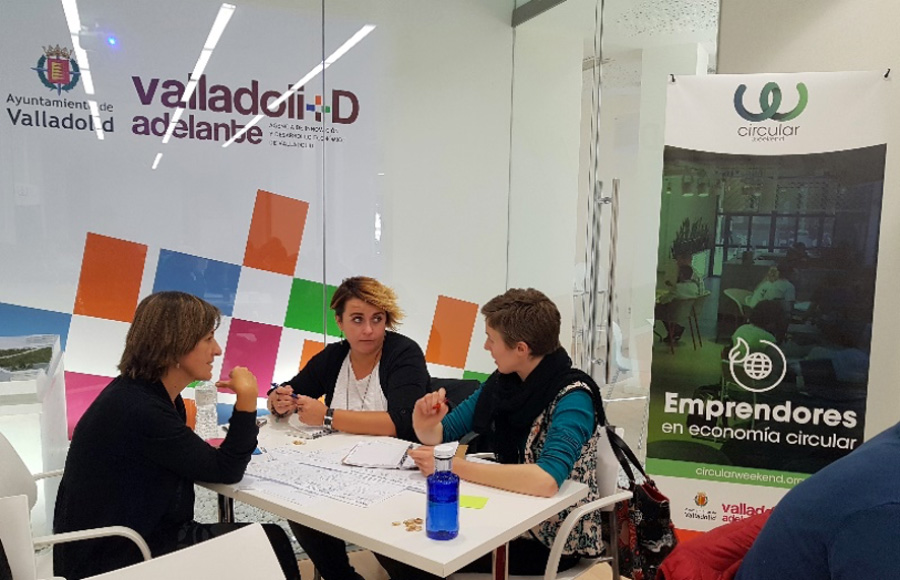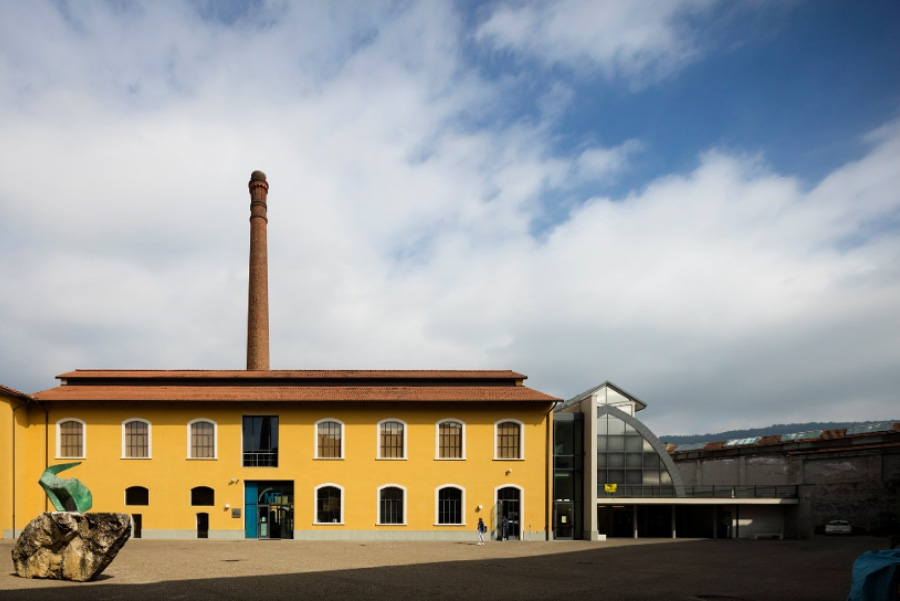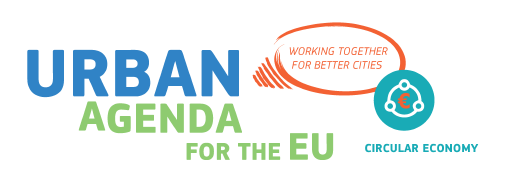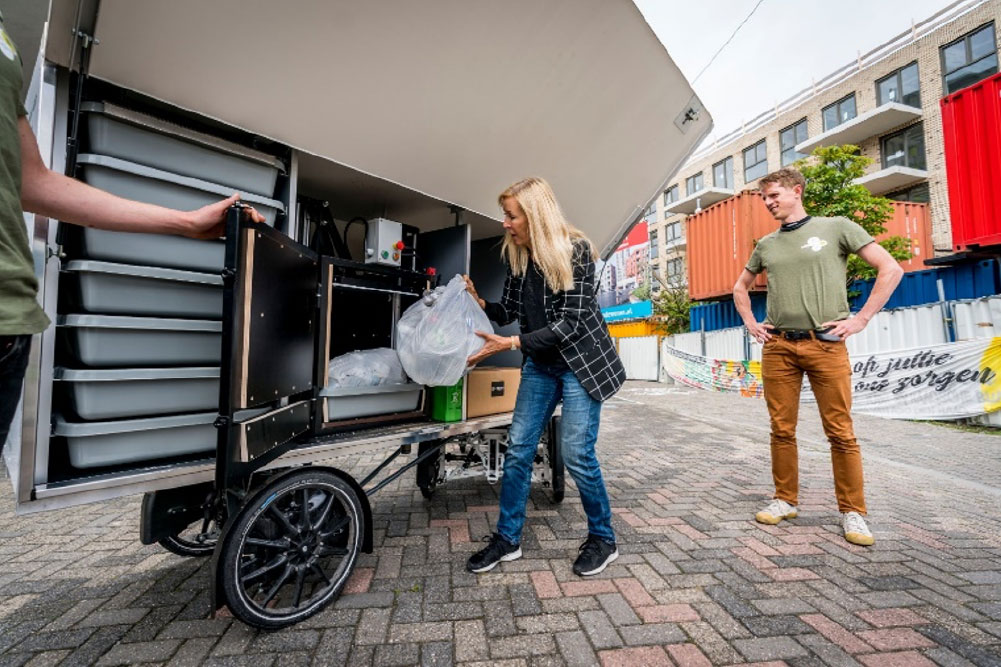
The Hague was not a very early adopter of the circular economy concept, but the city has proven to be a quick learner. The political, administrative, and legal capital of the Netherlands has taken advantage of the growing body of available information on circular city transitions. The municipality closely studied the characteristics of its own economy and asked itself the question: “what is in it for our city?” The short answer: an opportunity to provide the city’s growing population a prosperous and sustainable future.
The first concrete steps towards this future have become visible with an inspirational social circular economy hub ![]() , successful circular procurements
, successful circular procurements ![]() , and plans for a circular district
, and plans for a circular district ![]() . The Hague is on its way to become a circular leader and happily shares its experiences on a European level.
. The Hague is on its way to become a circular leader and happily shares its experiences on a European level.
Facilitator, catalyst and European champion
The Hague is not a green, progressive stronghold like Amsterdam or Utrecht. The Dutch seat of government also lacks an obvious industrial sector to take the lead in a circular transition. This resulted in a realistic, straightforward circular economy programme ![]() that builds on themes that are important for the city: the building sector (the city is expected to grow in the coming decades), services industry (important for an administrative capital), and households (a pleasant, liveable city for inhabitants).
that builds on themes that are important for the city: the building sector (the city is expected to grow in the coming decades), services industry (important for an administrative capital), and households (a pleasant, liveable city for inhabitants).
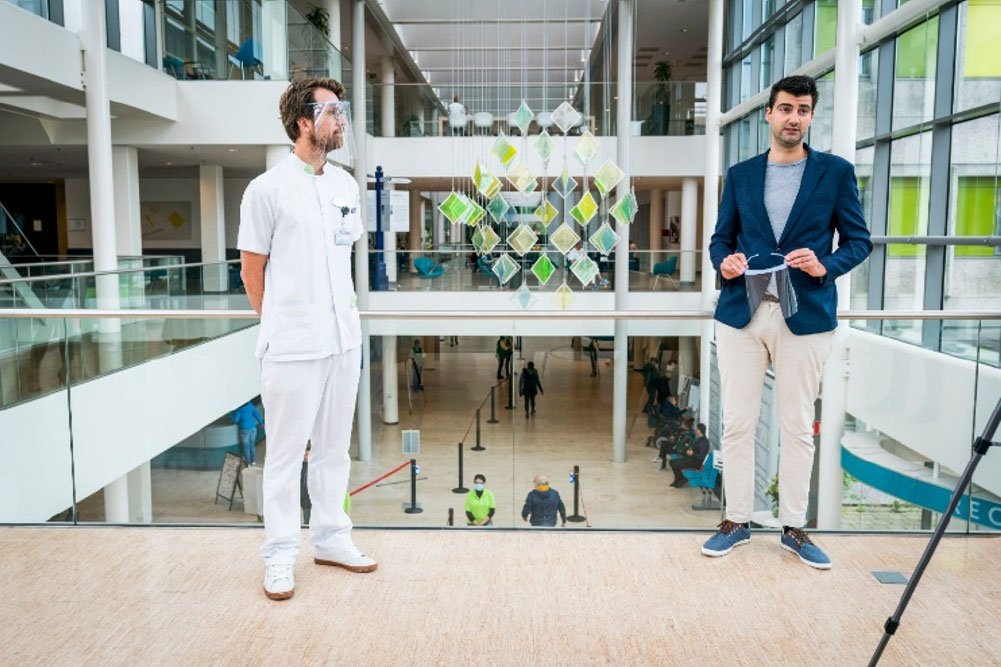
Figure 1. Face masks partially made from recycled plastics in the Plasticity project.
The Hague’s city government emphasises that it is foremost a facilitator of the circular transition. In this role, it can act as a catalyst of a more circular local ecosystem. The Hague therefore started the implementation of its circular plans with scoping the local ecosystem. They learnt that a good scoping of the ecosystem requires resources, time, and good coordination. However, the efforts helped the city to bring diverse initiatives together, resulted in new collaborations, and contributes to the long-term strategy of community building.
With its own circular transition on the way, The Hague started to share its experiences with other European cities. It became an active member of the European Association of Cities and Regions (ACR+ ![]() ) and partnered in initiatives like the Urban Agenda Partnership on Circular Economy
) and partnered in initiatives like the Urban Agenda Partnership on Circular Economy ![]() and the INTERREG project Plasticity
and the INTERREG project Plasticity ![]() . In addition, The Hague took the lead in developing and coordinating the Upcycle Your Waste
. In addition, The Hague took the lead in developing and coordinating the Upcycle Your Waste ![]() and RESOURCEFUL CITIES
and RESOURCEFUL CITIES ![]() projects. In these European collaborations, The Hague shares its insights on ecosystem scoping
projects. In these European collaborations, The Hague shares its insights on ecosystem scoping ![]() and drafting circular resource efficiency management plans
and drafting circular resource efficiency management plans ![]() .
.
How The Hague funds its circular projects
In line with its pragmatic approach to the circular economy, The Hague also holds a realistic view on obtaining funding:
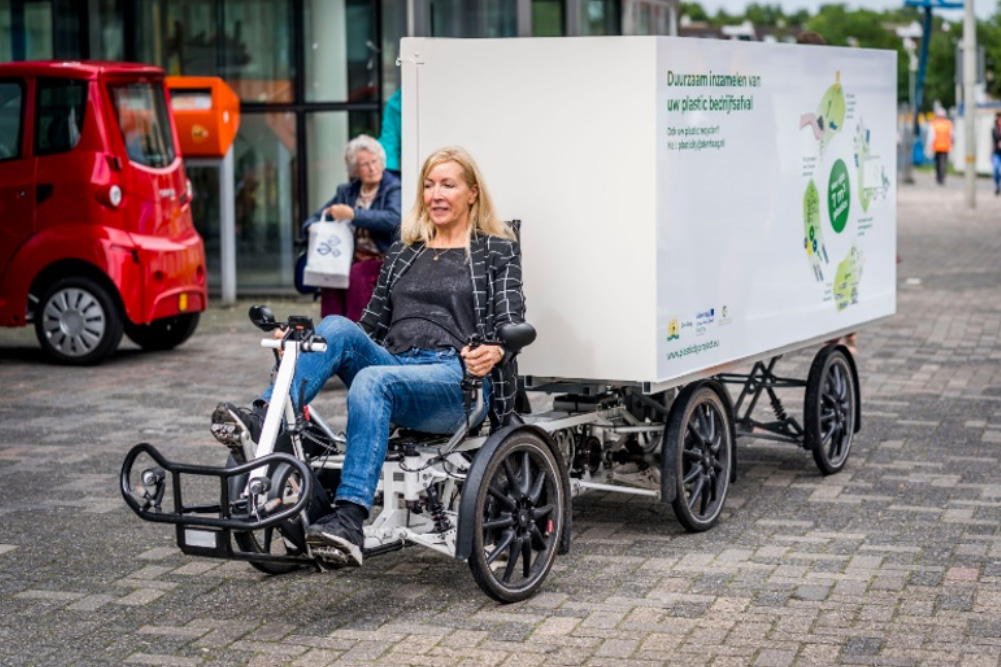
Figure 2. The Hague’s resource bike, part of the Plasticity project.
- Choosing the right funding instrument: The Hague always starts with a project and tries to find funding that matches it, instead of the other way around. Ideally, the funding should cover the whole project. The city builds on the concept of ‘serial financing’, in which you start with pilots and prototyping and turn this into mainstream activities, with fitting financing per phase. The Hague has used several funds in the past, from European funds such as Interreg to regional funds such as the European Regional Development Fund. The city also has a co-financing fund, which is used for projects that need additional funding as complement to grants.
- Identifying funding opportunities: To make sure the city council is up-to-date on all possible funding opportunities, The Hague has an “Grant Expertise Point” which consists of experts on local, national and regional funding programmes. Besides being able to answer all questions related to the funding of projects, the experts also match projects to funding programmes. This decreases the administrative burden on project developers. The Hague also has contracts with several advisory firms who offer support in this process.
- Seeking partners for projects: The strength of a consortium makes or breaks a project. Finding the right partners in the project initiation phase is essential. The Hague’s participation in the abovementioned European initiatives helps them in setting-up strong collaborations. In addition, its growing European visibility has resulted in the city being approached by external organisations such as universities with project proposals.
Lessons learnt
Based on the circular activities in the city of The Hague, several lessons can be learnt:
- When starting the circular transition in a city, it makes sense to first consider circular initiatives that already exist and bring them together, seeking synergies and complementarities. In this, the municipality can serve as facilitator, providing (financial) incentives for the initiatives to continue their activities and collaborate with others to stimulate the development of effective circular activities in the city. This also facilitates dissemination of smaller circular activities to a wider group of people.
- To make sure your circular project will reach its full potential, it is important that the funding matches your planned activities and ideally covers the whole project. By being aware of all possible funding sources and also considering alternative types of funding, such as loans or guarantees, it becomes easier to make the optimal funding decision.
- The Hague has become an active participant in European circular initiatives and has shared its own lessons learnt related to the circular economy with other stakeholders. These actions have improved the city’s visibility as an important actor in the circular economy, which has led to an increase of requests to join other circular projects and activities.
More information
Nature and Environment in the City of The Hague ![]()
